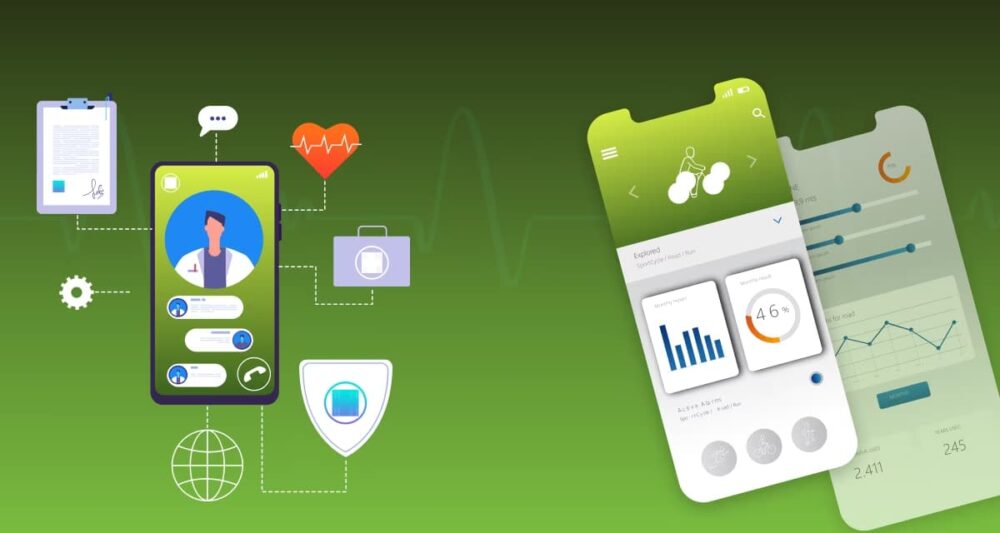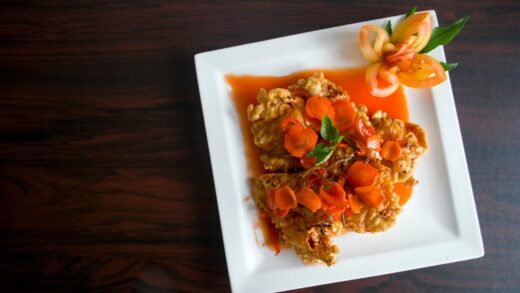The emergence of blockchain technology has had a significant impact on many industries, including food delivery, in recent times. The introduction of blockchain is unlocking transformative possibilities that are set to overhaul traditional operational methodologies within the industry. In an industry that has historically relied heavily on centralized systems, this ground-breaking technology promotes a move towards decentralized procedures while improving transparency and efficiency. In addition to improving current practices, this set of measures aims to maximize change for restaurants and their customers by creating a more transparent and equitable food delivery infrastructure.
Exploring Blockchain in Food Delivery: Revolutionizing Operations
Efficient order servicing and payment fulfillment can be represented by blockchain technology that does not involve centralized authority. The blockchain records every transaction, including payments and meal orders, producing an unchangeable record that guarantees the integrity and openness of all system activities. This same principle of transparency and trustworthiness applies to other uses of blockchain, such as crypto slots. The slot machines use blockchain technology to guarantee quick, safe transactions and preserve the integrity of the gaming experience, much like food delivery services.
Pros of delivery services
- Transparency and Traceability. Blockchain technology records every transaction, from placing the order to its delivery, on a public ledger. This feature enables users to track and confirm the history of their orders and payments, creating a transparent & verifiable system. This reduces the likelihood of fraud and errors by making every stage of the process clear and accountable.
- Reduced Reliance on Intermediaries. By leveraging Decentralized Applications (DApps), powered by blockchain, restaurants and delivery services can engage directly with consumers. This direct interaction bypasses conventional food ordering systems, reducing the costs associated with intermediaries and boosting profit margins for providers.
- Elevated Data Protection. Blockchain uses cutting-edge encryption techniques to strengthen data security and protect privacy. This robust safeguard is vital for keeping customer financial and personal details confidential, effectively defending against unauthorized breaches.
Technological innovations and examples of implementation
Blockchain is starting to carve a niche within the food delivery sector, introducing a variety of inventive solutions that are transforming conventional methods of order processing and customer engagement.
Automating orders and deliveries via smart contracts
Smart contracts represent one of blockchain’s most important uses within the food delivery sector. These contracts programmatically encode the terms of transactions and automatically fulfill them when certain conditions occur. For instance, a smart contract handles the payment when a customer places an order and makes sure the money is given to the restaurant only after the order is delivered. This minimizes risk and increases trust between the parties. Also, thanks to blockchain, the entire transaction history remains transparent and unaltered.

Token-based loyalty programs
The incorporation of bitcoin tokens into loyalty programs is an additional inventive strategy. Tokens that clients earn with each order might be issued by dining establishments & delivery providers. These tokens can be used to pay for future orders or redeemed for other benefits. Such a system not only incentivizes repeat purchases, but also creates an ecosystem where value is retained within the platform, increasing customer retention.
Risks & problems
Scalability
- Technical Difficulties: Scalability is a significant challenge in the realm of the blockchain. Major blockchain platforms such as Ethereum often struggle to process a large number of transactions efficiently during peak periods.
- Implications: This struggle can lead to increased transaction times and higher fees. Such drawbacks negatively impact the user experience by causing delays and potential increased costs for customers.
Combining with Current Systems
- Complexity of Integration:There are several obstacles to overcome when integrating blockchain technology into traditional accounting and logistical systems. The complexity stems from the need to adapt these traditional systems to work seamlessly with blockchain-based operations.
- Cost Considerations: Blockchain integration might come with a hefty price tag. Businesses must account for the initial investment required for technical adaptation.
- Training Requirements: There is also a significant need for staff training to ensure that employees are adept at managing the nuances of the new system. This training involves understanding blockchain’s functionality and integrating it effectively within their daily operations.
Looking to the Future
A completely new degree of communication between suppliers and customers is promised by the groundbreaking introduction of blockchain technology into the meal delivery sector. These technologies offer opportunities for radical changes in the way we order, pay and interact with customers, while at the same time increasing user trust and satisfaction through unprecedented data transparency and security.
Developing decentralized ecosystems
A key component of blockchain’s future uses is the creation of fully decentralized food delivery networks. Because these systems don’t require conventional middlemen like payment processors and aggregators, end users’ service costs will be lower and providers’ earnings will rise. For order fulfillment, payment processing, & feedback, smart contracts will allow restaurants to communicate directly with customers and other stakeholders.
Increased openness & security
Blockchain allows each customer to trace the full path of their order – from preparation to delivery. This not only increases consumer trust, but also helps suppliers improve their service quality by analyzing data for each step. Also important is the protection of customer data, which, thanks to blockchain, remains anonymous & safe from hacks and leaks.
Integration with other technologies
In the future, we can expect to integrate blockchain technology with artificial intelligence and the Internet of Things. This will automate many processes related to food delivery, such as optimizing delivery routes and real-time inventory management. Using AI to analyze customer preferences and automatically generate personalized offers will also be possible thanks to a robust database built on blockchain.
Prospects for globalization & scalability
Global adoption of decentralized food delivery services is anticipated to rise in tandem with technological advancements and the expansion of blockchain platforms. International food business could be made simpler and more secure by using blockchain technology to unify safety and quality rules across national boundaries.





Recent Comments